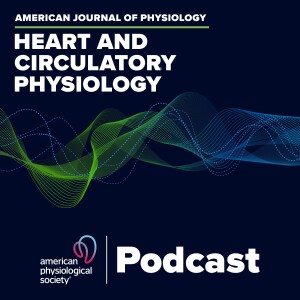
Do T cells directly contribute to the inflammatory response and progression of atherosclerosis? Guest Editor Kristine DeLeon-Pennell (Medical University of South Carolina) interviews lead author Anthony Vella (University of Connecticut Health) and content expert Shyam Bansal (The Ohio State University) about the new study by Xu et al published as part of the AJP-Heart and Circulatory Physiology Call for Papers on Adaptive Immunity in Cardiovascular Disease. By activating T cells via the 4-1BB pathway, also known as the common potent anti-tumor biologic CD137, Vella and co-authors found that the T cells were attracted to sites of inflammation. Using sophisticated T cell isolation techniques to analyze the T cells within the plaque, Vella and collaborators determined that co-stimulated T cells penetrated deep into the plaque and perpetuated inflammation. Does this study suggest that there is a dynamic cross-talk between immune cells, and that inhibiting infiltration by T cells into plaques could alter the cascade and inhibit the progression of atherosclerosis? How do auto-immune disease and sex differences fit into this picture? Listen and find out.
Maria Mei Xu, Antoine Ménoret, Sarah-Anne E. Nicholas, Sebastian Günther, Eric J. Sundberg, Beiyan Zhou, Annabelle Rodriguez, Patrick A. Murphy, and Anthony T. Vella Direct CD137 costimulation of CD8 T cells promotes retention and innate-like function within nascent atherogenic foci Am J Physiol Heart Circ Physiol, published April 12, 2019. DOI: 10.1152/ajpheart.00088.2019
More Episodes
 2021-08-06
2021-08-06
 387
387
 2021-07-16
2021-07-16
 414
414
 2021-06-18
2021-06-18
 467
467
 2021-06-07
2021-06-07
 773
773
 2021-05-14
2021-05-14
 383
383
 2021-05-10
2021-05-10
 386
386
 2021-05-06
2021-05-06
 351
351
 2021-04-26
2021-04-26
 337
337
 2021-04-06
2021-04-06
 384
384
 2021-03-24
2021-03-24
 361
361
 2021-03-16
2021-03-16
 373
373
 2021-02-04
2021-02-04
 553
553
 2021-01-22
2021-01-22
 372
372
 2021-01-11
2021-01-11
 396
396
 2020-12-11
2020-12-11
 526
526
 2020-12-04
2020-12-04
 300
300
 2020-11-20
2020-11-20
 282
282
 2020-10-23
2020-10-23
 345
345
Create your
podcast in
minutes
- Full-featured podcast site
- Unlimited storage and bandwidth
- Comprehensive podcast stats
- Distribute to Apple Podcasts, Spotify, and more
- Make money with your podcast
It is Free
- Privacy Policy
- Cookie Policy
- Terms of Use
- Consent Preferences
- Copyright © 2015-2024 Podbean.com





